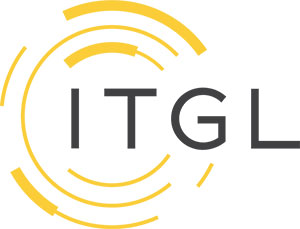13 October 2023 - Avoiding User Disenfranchisement in Digital Transformation
When it comes to technology, it's seductively easy to fall into the trap of believing that ‘a rising tide lifts all boats’. In reality, however, any kind of digital transformation that impacts upon users will require a thoughtful approach to ensure that it does not have unintended consequences. In education, particularly, our systems touch and are touched by users from all walks of life, whose needs, expertise, and expectations may be radically different from those responsible for the systems. In such circumstances, pushing ahead with even relatively minor changes without proper consideration can easily lead to those without a certain level of digital literacy or accessibility being left behind, and ultimately providing a worse service than existed prior to any changes being made. How, then, can we set about providing transformative experiences to students and staff without risking digital exclusion?
At ITGL, we’ve worked with dozens of universities and educational institutions across the UK to deliver transformative new projects and solutions. During this time, we’ve consistently seen the benefits of close collaboration, not only with university leadership and IT teams, but with stakeholders from across the institution at every level. We make it a point to emphasise that ‘planning’ isn’t just the first step in a project – it’s an ongoing process informed by every other step and every interaction along the way. A solution that sticks rigidly to an objective but that doesn’t work in the real world isn’t really a solution at all. And of course, a project can’t be considered a success if it leaves a proportion of its users less well served than prior to implementation.
To avoid such pitfalls, it’s vital that we understand not just what the problem is from a top-down view, but also where it intersects with every individual’s experience along the way. However good a solution might be on paper, if it relies on its users changing their behaviour in order to take advantage, it runs the risk of being underutilised regardless of its theoretical benefits. This is particularly true in educational environments, where users include students (or even prospective students) whose digital interactions cannot easily be mandated.
Part of the answer to this problem is to look at how users already interact digitally and meeting them there. When ITGL recently worked with Coventry University, we were presented with the challenge of efficiently serving prospective students going through the Clearing process – a highly charged period of their lives that is all too often stressful and inefficient for everyone involved. Coventry University had previously looked at offering contact via WhatsApp using the service’s own tools, but had found them unfit for purpose, being difficult to manage and providing no insight into user engagement. By collaborating closely with the University, we were able to provide a solution that allowed WhatsApp messages to be received and managed within the Cisco Webex Customer Experience platform, delivering them to agents through a dedicated agent desktop. Agents were then able to work anywhere, at any time, feeding everything into a single dashboard to make for easy administration and reporting. Importantly, though, all of this was invisible to prospective students – as far as they were concerned, they just had a new, easy way to reach out to a potential university using a medium that they already understood and that was within their comfort zone.
And for Coventry University, the results were similarly positive – enabling them to support roughly 6,000 students across the traditional hotline and the WhatsApp service, marking their highest number of Clearing conversations in five years. At ITGL, we understand that institutions’ resources can be very limited, and every investment has to make a difference. Our dedicated Client Success teams work with clients like Coventry University to ensure that they not only get the full value of their initial implementation, but that they continue to benefit from their investment in new and unforeseen ways going forward. In Coventry’s case, the University is already looking at how they can further utilise the Webex platform with WhatsApp and other communication channels in the future.
This example of meeting students more than halfway is a microcosm of the broader approach that digital transformation requires. No transformation is frictionless, and each change necessitates careful consideration of the stakeholders that will be affected. It should never be the case that anyone – staff member, student, or otherwise – feels left behind or excluded by technological progress, but only empowered by the additional options and possibilities it provides. Whatever else it may achieve for a university behind the scenes, digital transformation must be additive for the users, providing new avenues for them to interact in the ways they feel most comfortable.
This is an approach that’s central to the way ITGL approaches every project. Whether it’s providing network refreshes across entire campuses to provide rock-solid connectivity and reliability in high-density environments, or working with institutions to allow for innovative new remote learning possibilities, we’re determined that everyone benefit from the promise of technology, and no one be excluded.
You can discover more about how ITGL has helped support universities to bring about digital transformation by visiting our website, or get in touch with our dedicated public sector team at pubsec@itgl.com to talk more about how we can bring transformative change to your institution, your staff, and your students.


